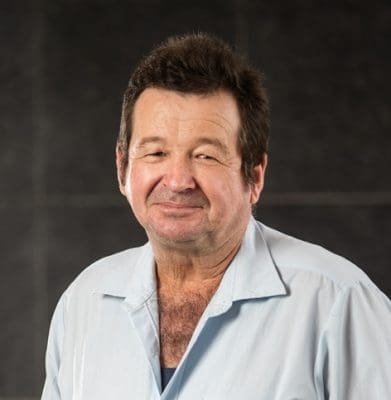Opinion piece submitted by Northern Territory cattle producer and former Cattle Council of Australia president Markus Rathsmann
No one likes extra taxes but Australian farmers are major beneficiaries of a robust well funded Biosecurity system.
Our island continent has been free of many of the worlds major diseases and Australian farmers have certainly the most to lose when there are biosecurity breaches.
The beef industry which exports over 70pc of production would be economically crippled by lack of market access with the entry of exotic disease.
Biosecurity has been underfunded for the last twenty years.
And the budget has been inadequate to keep up with the increase in air travel and an ever increasing level of imported goods.
Both sides of politics have certainly grasped the importance to increase Biosecurity funding with a significant number of exotic diseases across the Indonesian archipelago moving closer to Northern Australia.
Yes oversight is essential.
This has been provided to the agricultural leadership via the Independent Inspector General of Biosecurity.
Established by the former government under the Biosecurity Act of 2015, previous Inspector Generals have provided frank, independent oversight of policy, regulation and capacity in our biosecurity system.
Hon Minister Murray Watt despite some industry criticism has to his credit sought to increase the Biosecurity budget close to 1 billion up from a previous budget allocations around 550 million.
The recent proposal for industry to have a seat at the table and address Biosecurity concerns has real merit and is a positive step forward.
The Container levy proposition was put forward several years ago to the Australian parliament.
Unfortunately the legislation was defeated and it is well understood that the Ports and Stevedoring interests have better paid lobbyists walking the corridors of Canberra than our poorly funded farm bodies.
Since the defeat of the draft Container legislation, government departments have looked to increase cost recovery mechanisms to fund Biosecurity.
Some peak industry councils knowing the Biosecurity funding shortcomings had also flagged the prospect of a dedicated Biosecurity levy in previous years of discussions.
We can argue about fairness and the prospect of a new tax year after year till the cows come home.
As a cattle producer I am happy to contribute more via a levy if we can help build a stronger properly funded biosecurity system that properly protects our livestock and plant industries NOW and into the future .
Senate inquiry on supermarket pricing
The opportunity to front the Senate and seek reform for our meat industry should not be missed.
Grinding axes against any industry sector will serve little benefit for reform.
We need to acknowledge that our primary industries and the supply chain to the consumer needs to be efficient, competitive and transparent.
Coles and Woolworths supermarkets have been highly successful and changed the way Australians buy their meat.
Our production sector is quite different characterized by 50,000 beef producers which are mostly family run enterprises.
When Coles and Woolworths reputedly control over 70% of domestic meat sales there is little doubt a duopoly exists and the power and control exerted by such a large market share does send up red flags.
The continuing demise of competition from butcher shops and the decline in butchery as a trade skill is concerning to many in the meat industry.
Today co products such as offal’s and foetal blood are extremely valuable in the supply chain in which the producer receives no feedback or benefit . Who does?
While price transparency is desirable along the supply chain it basically takes legislation to achieve it.
This is why as far back as 1921 the US initiated the US packers and Stockyard Act.
It has celebrated over 100 years and was recently modernized by congress.
Our own meat processing industry is also largely a duopoly with the lions share controlled by Brazilian Giant JBS, no stranger to the courts or controversy.
Our other major processor being Teys/Cargill.
So it is interesting to note that with a similar market dominance and consolidation in the US , that the government is seeking to assist the smaller processors boost market competition.
Australia is the most expensive country in the world to process meat when compared to our major competitors.
This was the finding of the Heilbron report commissioned by AMPC.
It identified energy prices, meat inspection charges and labour as the major costs and challenges of the processing sector.
With meat processing now the largest manufacturing industry left in Australia.
It is essential we have the right government policy and regulatory settings in place that keeps our meat industry competitive, efficient and transparent.




At last a voice of reason and fairness in relation to biosecurity funding and budget.
Thank you Markus.